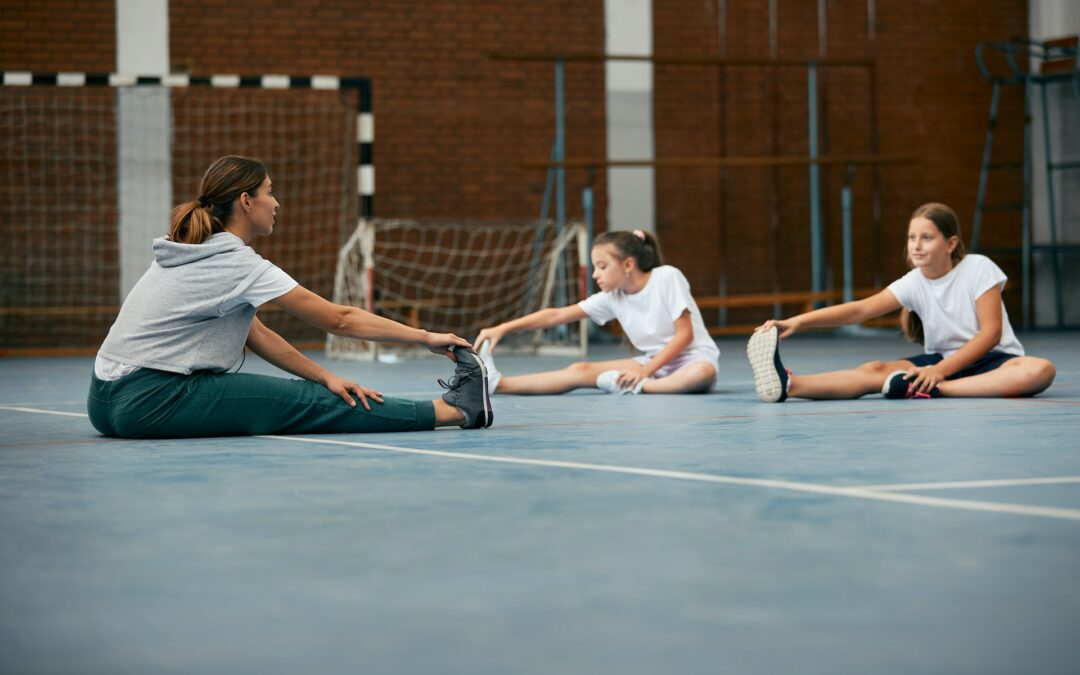Leadership skills are indispensable in today’s fast-paced and interconnected world. Children who develop these abilities early on are more likely to excel in their future academic, professional, or personal endeavours. The PE curriculum in physical education provides a multitude of opportunities to cultivate leadership skills such as effective communication, teamwork, decision-making, and problem-solving. By participating in sports and physical activities, children can hone these skills within dynamic, real-life situations that promote personal growth and self-awareness.
Moreover, physical education fosters a sense of responsibility, resilience, and discipline among children, equipping them with the mental fortitude to navigate challenges and setbacks they may encounter as future leaders. Through physical education, children learn the value of preparation, commitment, and perseverance – transferable qualities in various aspects of their lives.
In this article, we will delve into the role physical education plays in developing leadership skills in children, exploring how various activities, challenges, and experiences contribute to the emergence of future leaders. Join us as we uncover the secret behind Sprint Active Education’s success in cultivating young leaders and learn how to inspire your children to lead with confidence, empathy, and determination.
Strengthening Communication and Teamwork Abilities
Effective leadership is intrinsically linked to strong communication and teamwork abilities. Through participation in team sports, group activities, and cooperative challenges, children engage in a continuous dialogue with peers and coaches, enhancing their communication skills. By collaborating with diverse teams, children learn to express their thoughts, listen actively, and appreciate the perspectives of others. Incorporate these strategies to foster better communication and teamwork:
– Encourage children to take on different roles within a team, such as a captain or strategist, cultivating their understanding of various responsibilities and leadership styles.
– Utilise group activities that require effective communication and collaboration, such as obstacle courses, team relays, and cooperative problem-solving challenges.
– Employ peer-feedback sessions where children can share their experiences, insights, and suggestions, building essential skills in giving and receiving constructive criticism.
Developing Problem-solving and Decision-making Skills
Leaders are often required to make difficult decisions and navigate complex situations. Physical education presents an array of opportunities for children to develop problem-solving and decision-making abilities as they encounter dynamic situations that demand quick thinking and strategic planning. Consider the following methods to enhance these skills:
– Incorporate games or activities that encourage children to think critically and adapt to changing circumstances, promoting cognitive flexibility and resourcefulness.
– Challenge children to devise original strategies and tactics in team sports, fostering creativity and innovation in their approach to problems.
– Provide opportunities for children to take on leadership roles within teams, empowering them to make decisions and guide their peers towards shared objectives.
Cultivating Resilience and Emotional Intelligence
A key hallmark of effective leadership is resilience, the ability to bounce back from setbacks and maintain a positive attitude despite adversity. Through physical education, children learn to persevere in the face of challenges and develop emotional intelligence, enabling them to manage their emotions and empathise with others. Employ these approaches to build resilience and emotional intelligence:
– Encourage children to set personal goals and celebrate their achievements, instilling a sense of self-belief and reinforcing the value of hard work and perseverance.
– Discuss the importance of overcoming setbacks and learning from failures, helping children develop a growth mindset and resilience in the face of obstacles.
– Train children in emotional regulation techniques, such as mindfulness and relaxation exercises, equipping them with the tools to manage stress and maintain composure during difficult situations.
Fostering Responsibility and Ethical Leadership
Responsible and ethical leadership involves the consideration of social, environmental, and moral implications in decision-making. Physical education programmes that promote sportsmanship, fair play, and respect for others can instil a sense of responsibility and ethics in children, shaping them into conscientious and principled leaders. Take these steps to inculcate responsibility and ethical leadership in children:
– Teach children the importance of sportsmanship, fair play, and respecting the rules, emphasising the value of ethical behaviour both on and off the field.
– Engage children in discussions about different ethical dilemmas in sports and physical activities, encouraging them to reflect on their responsibilities and those of their teammates.
– Encourage children to take part in community service or environmental initiatives, broadening their understanding of the wider impact of their actions and the importance of altruism.
Conclusion
Physical education possesses immense potential to cultivate essential leadership skills in children, paving the way for them to become confident and capable leaders in their adult lives. Through engaging sports and activities, PE providers like Sprint Active Education empower children to develop effective communication, problem-solving, resilience, and ethical leadership skills, equipping them with the tools they need for a successful and fulfilling future. Explore Sprint Active Education’s programmes and ignite the leader within your child, nurturing their potential and preparing them for life’s challenges and triumphs.

